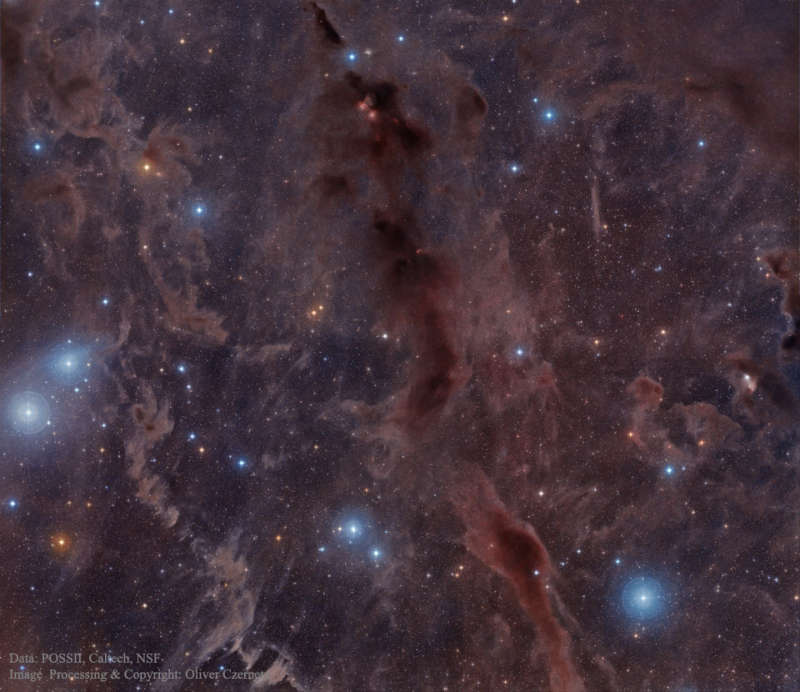Credit & Copyright:
Image Processing & Copyright: Oliver Czernetz - Data: Digitized Sky Survey (POSS-II)
Explanation:
Sometimes even the dark dust of interstellar space has a serene beauty.
One such place occurs toward the constellation of Taurus.
The
filaments featured here can be found
on the
sky between the
Pleiades star cluster and the
California Nebula.
This dust is not known not for its bright glow but for its absorption and opaqueness.
Several bright stars are visible with their blue light seen
reflecting off the brown dust.
Other stars appear unusually red as their light barely peaks through a column of dark
dust,
with red the color that remains after the
blue is scattered away.
Yet other stars are behind dust pillars so thick they
are not visible here.
Although appearing serene, the scene is actually an ongoing loop of tumult and rebirth.
This is because massive enough knots of gas and dust will
gravitationally collapse
to form new stars -- stars that both
create new
dust
in their atmospheres and destroy old dust with their energetic light and
winds.
Image Processing & Copyright: Oliver Czernetz - Data: Digitized Sky Survey (POSS-II)
1999 2000 2001 2002 2003 2004 2005 2006 2007 2008 2009 2010 2011 2012 2013 2014 2015 2016 2017 2018 2019 2020 2021 2022 2023 2024 2025 |
Январь Февраль Март Апрель Май Июнь Июль Август Сентябрь Октябрь Ноябрь Декабрь |
NASA Web Site Statements, Warnings, and Disclaimers
NASA Official: Jay Norris. Specific rights apply.
A service of: LHEA at NASA / GSFC
& Michigan Tech. U.
|
Публикации с ключевыми словами:
dust - Taurus - Межзвездный газ - Межзвездная пыль - звездообразование
Публикации со словами: dust - Taurus - Межзвездный газ - Межзвездная пыль - звездообразование | |
См. также:
Все публикации на ту же тему >> | |
